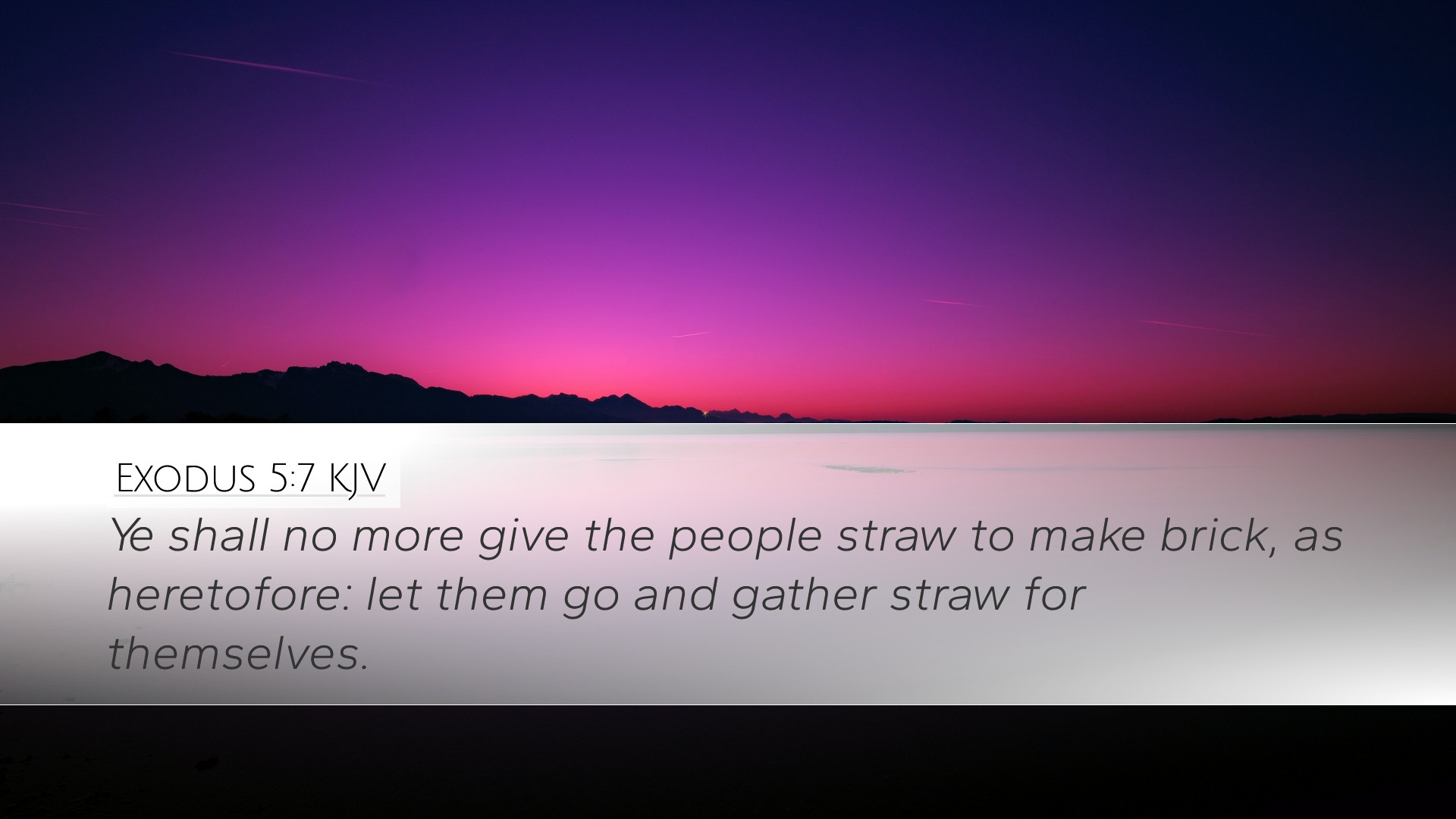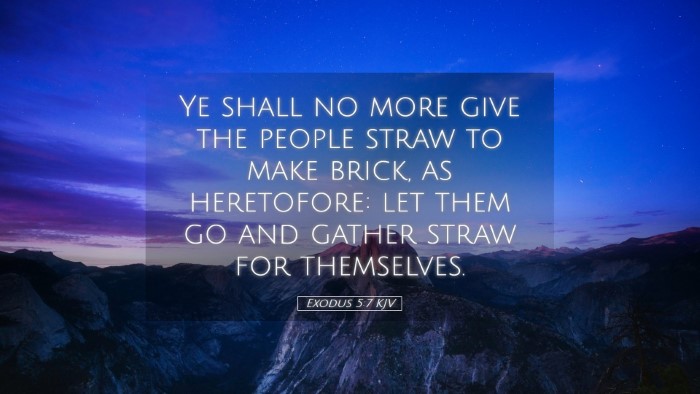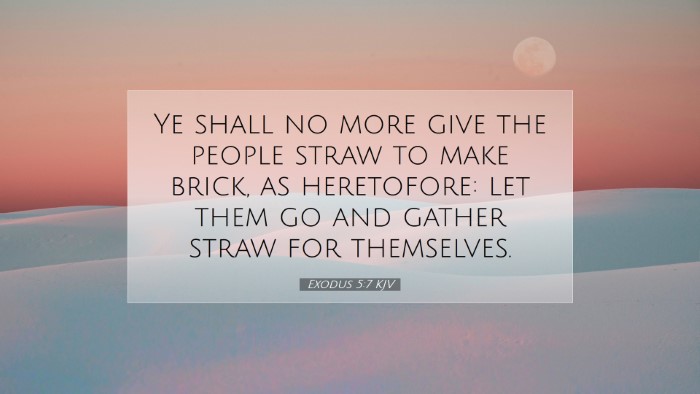Exodus 5:7 - Bible Commentary Summary
Verse: “Ye shall no more give the people straw to make brick, as heretofore: let them go and gather straw for themselves.”
Contextual Overview: Exodus 5 serves as a pivotal chapter in the ongoing narrative of Israel's oppression in Egypt, setting the stage for the dramatic events that follow. In this chapter, Moses and Aaron confront Pharaoh, demanding the release of the Israelites for worship, which leads to increased burdens placed upon them.
Commentary Insights from Traditional Scholars
Matthew Henry’s Commentary
Matthew Henry emphasizes the spiritual significance of this demand made by Pharaoh. His commentary highlights that the demand for straw signifies the harshness and inhumanity of Pharaoh’s rule. The implementation of this new burden is not just a practical grievance but also a metaphor for the trials faced by the people of God. Henry notes:
- The oppression of the Israelites is exacerbated by this command, illustrating how leaders may increase burdens when faced with divine challenges.
- Pharaoh’s intent to break the will of the Israelites is evident; it parallels how the enemy seeks to diminish faith among believers through opposition.
Henry also points out the importance of the term "as heretofore" in this verse, noting that previously the Israelites were provided with straw, which signifies a certain level of grace in their oppression. This recent escalation in their labor tasks was a direct response to the proclamation of liberation.
Albert Barnes’ Notes on the Bible
Albert Barnes offers a keen analysis of the practical implications of this decree. He remarks that:
- Straw was essential for brick-making, essential in the construction process, thus exemplifying Pharaoh's cruel intent to hinder the Israelites’ ability to meet their production quotas.
- The task of gathering straw themselves would not only add to their workload but also serve to demoralize the people, as they were forced to perform to the same standards without the necessary resources.
Barnes highlights that this increasing burden reflects a common theme in biblical narratives: the struggle between oppressors and the oppressed, as well as divine intervention. He further notes how this decree serves to reveal Pharaoh's character, illustrating a leader consumed with pride and power, even against divine will.
Adam Clarke’s Commentary
Adam Clarke provides a unique perspective regarding the meaning and implications of Pharaoh’s orders. He argues that the order to gather their own straw is both a logistical nightmare and a psychological tactic employed by Pharaoh. Clarke suggests that:
- This imposition serves as an attempt to weaken the resolve of the Israelites, making their labor even more burdensome.
- By taking away the resources supplied under previous arrangements, Pharaoh demonstrates a deliberate effort to dehumanize the Israelite people.
Clarke also emphasizes the consequences of this command, noting that it leads to a greater recognition of their plight, and potentially sets the stage for the subsequent pleas and cries to God for deliverance. The irony in this situation is palpable: as they are pushed to their limits, many will turn back to their God for assistance.
Theological Implications
The theological implications of Exodus 5:7 extend beyond the immediate suffering of the Israelites. This verse speaks volumes to the themes of oppression, faith, and divine intervention.
- Oppression and Suffering: The escalating demands of Pharaoh serve as an archetype of earthly rulers who disregard the humanity of those under their control. The command to gather their own straw symbolizes the broader narrative of the suffering endured by God’s chosen people.
- Faith Amid Adversity: This verse underscores the resilience of faith, as the Israelites find themselves doubting God's promises in the face of increased persecution. The text reveals a critical juncture where faith must contend with visible trials.
- Divine Promise of Deliverance: The increase in oppression sets the stage for a miraculous deliverance. Understanding this dynamic can deepen the study of God’s providence in the face of evil, which is a recurring theme throughout the biblical narrative.
Conclusion
Exodus 5:7 thus serves as a critical verse for understanding the nature of suffering, the role of leadership, and the tension between faith and despair. The insights provided by medieval scholars like Henry, Barnes, and Clarke illustrate the profundity of this moment in Israel's journey. Each commentary enriches our comprehension, urging pastors, students, and theologians to engage deeply with the text and glean meaningful applications for contemporary spiritual life.


